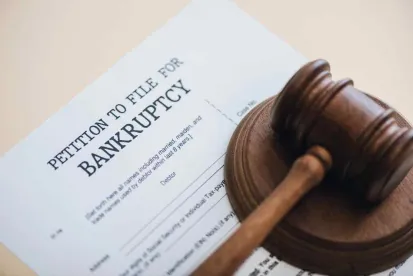On January 14, 2021, the Supreme Court unanimously held in City of Chicago v. Fulton that a creditor’s passive retention of a debtor’s property does not violate section 362(a)(3) of the Bankruptcy Code. The Court’s 8-0 decision (Justice Barrett did not participate in the consideration or decision of the case) may have the unintended effect of increasing bankruptcy costs and making it more difficult for individual debtors to achieve a “fresh start”.
I. Background
When a bankruptcy case is filed, certain Bankruptcy Code sections take immediate effect and have a significant impact on a debtor’s property. First, section 541(a)(1) creates the bankruptcy estate, which is comprised of “all legal or equitable interests of the debtor in property.” This includes any property made available to the estate by other provisions of the Bankruptcy Code. One such other provision is section 542, which governs the turnover of property to the debtor’s estate. Section 542 commands that, with certain exceptions, any entity in possession of a debtor’s property shall deliver the property to the debtor.
Second, a bankruptcy petition operates as an automatic stay, preventing, in relevant part, “any act to obtain possession of property of the estate…or to exercise control over property of the estate.” 11 U.S.C. § 362(a)(3). The automatic stay is one of the fundamental elements of the bankruptcy system: it protects the debtor’s assets from unilateral creditor actions during the bankruptcy case and maintains the status quo.
II. The Facts
The Fulton case involved four individual debtors, each with the same unfortunate story: the City impounded their vehicles for nonpayment of fines and fees under the Chicago Municipal Code; they filed Chapter 13 bankruptcy in response to the impoundment; and they requested that the City return their vehicles. When the City refused, each debtor argued that failure to return their vehicle violated the automatic stay. In each case, the bankruptcy court agreed.
III. The Seventh Circuit Decision and the Circuit Split
These four cases were consolidated on appeal to the Seventh Circuit Court of Appeals, and the appellate court affirmed the bankruptcy courts’ decisions. In In re Fulton, 926 F.3d 916, 925 (7th Cir. 2019), the court reasoned that the passive retention of estate property is “an act to…exercise control” over the property in violation of section 362(a)(3). Rather than requiring the debtors to bring an action for turnover under section 542(a), the court held that the automatic stay imposed an affirmative obligation on the City to turn the vehicles over as soon as the debtors filed their bankruptcy petitions.
With this decision, the Seventh Circuit joined the Second, Sixth, Eighth, Ninth and Eleventh Circuits in finding that failure to return property seized prepetition violates the automatic stay. Conversely, the Third, Tenth and D.C. Circuits all previously held that retention of seized property does not violate the automatic stay. This circuit split made this issue ripe for Supreme Court review and on October 13, 2020, the Court heard oral argument
IV. The Supreme Court’s Decision
In a unanimous decision authored by Justice Alito, the Supreme Court vacated the Seventh Circuit judgment and held that merely retaining possession of estate property seized prepetition does not violate section 362(a)(3). The Court reached this decision based on three conclusions.
First, the Court held that reading “any act…to exercise control” in section 362(a)(3) to cover mere retention of property would make that section a blanket turnover provision, and render the “central command of section 542 largely superfluous.” Since section 542 governs the turnover of property to the estate, it would be surplusage if section 362(a)(3) already required an entity to relinquish control over the property as soon as a bankruptcy petition is filed.
Second, the Court held that if the debtors’ proposed reading of section 362(a)(3) was accepted, the stay would eliminate the exceptions enumerated in section 542. Section 542 lists certain property that need not be turned over to the estate. If section 362(a)(3) covered mere retention of estate property, the Court held that this would command turnover of property that is clearly excepted from turnover by section 542.
Third, Justice Alito’s opinion concluded by reviewing legislative history. Sections 362(a)(3) and 542 were included in the original Bankruptcy Code. However, section 362(a)(3) originally applied the stay only to “any act to obtain possession of property of the estate”; the phrase “or to exercise control of the estate” was not added until the 1984 amendments. The Court reasoned that transforming 362(a)(3) into a blanket turnover provision would have constituted a substantive change to the Bankruptcy Code. Had Congress wanted to make such an important change, it would have done so explicitly by cross referencing 362(a)(3) to section 542 or otherwise indicating its intent to do so.
V. Takeaways
Although the future implications of this decision remain to be seen, one thing is certain: this was an incredibly narrow decision. As Justice Sotomayor’s concurrence makes clear, the Court did not decide whether and when section 362(a)’s other provisions require a creditor to return a debtor’s property. The City’s actions here may well have violated other provisions in section 362, but the Court did not decide this issue one way or another.
Even though this case involved Chapter 13 debtors, the decision likely has implications for Chapter 7 and 11 debtors as well since at the very least, debtors will now have to bring adversary proceedings under section 542 to recover property retained by a creditor, rather than relying on section 363(a)(3). These proceedings consume time and money, reducing assets in a debtor’s estate and limiting the amounts that other creditors may recover in a liquidation or plan of reorganization.
Emily Shandruk contributed to this article.



 />i
/>i

